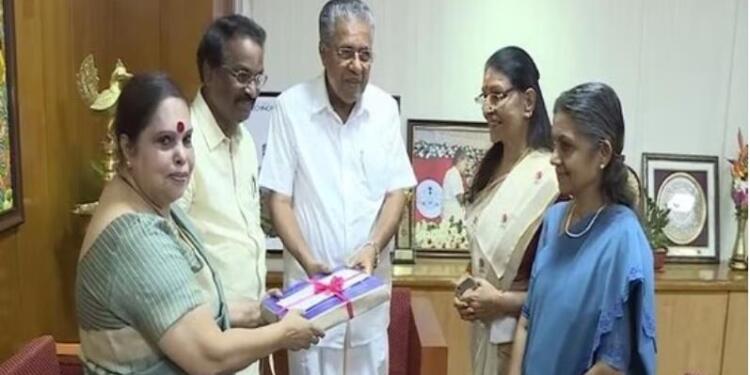The Malayalam film industry, long celebrated for its nuanced storytelling and captivating performances, is now grappling with a shocking scandal that underscores a severe and troubling issue: systemic sexual harassment. The turmoil began with the assault of actress Bhavana Menon in 2017, an incident that implicated prominent actor Dileep and led to his brief incarceration. This event, and the subsequent allegations, have ignited a firestorm in the industry, culminating in the creation of the Justice Hema Committee and several ongoing investigations.
The Crisis Unfolds
In 2017, the assault of actress Bhavana Menon by a group of men traveling from Thrissur to Kochi became a major headline. The involvement of leading actor Dileep, though he denied the charges and was later released on bail, cast a shadow over the film industry. In response to this and similar incidents, the Women in Cinema Collective (WCC) was formed, leading to the establishment of the Hema Committee in November 2017 to investigate these issues.
Findings of the Justice Hema Committee
The Justice Hema Committee, chaired by retired Justice K Hema, revealed disturbing findings about the Malayalam film industry. The committee’s 235-page report, released on August 19, 2023, detailed systemic abuses and pointed to a male-dominated control of the industry. According to the report, the industry is largely governed by a small group of influential men—producers, directors, and actors—who have leveraged their power to perpetuate exploitation and harassment.
The committee uncovered that women in the industry often face severe indignities, including lack of basic facilities such as toilets and changing rooms on sets. Many women must find secluded spots for personal needs, reflecting a broader pattern of neglect and disrespect towards female workers.
Personal Accounts and Emerging Investigations
The release of the report prompted several women to come forward with their own stories. Bengali actress Sreelekha Mitra accused director Ranjith of sexual misconduct during a 2009 film project. Mitra’s complaint to the Kochi City Police detailed a disturbing encounter where Ranjith allegedly tried to assault her under the guise of a professional meeting.
Actress Revathy Sampath also accused actor Siddique of sexual misconduct, alleging that he used deceptive means to lure her into a compromising situation. Siddique has since filed a counter-complaint against Sampath, adding another layer of complexity to the unfolding drama.
Actor Minu Muneer has similarly accused multiple male co-stars, including M Mukesh who is an MLA of CPI (M), Jayasurya, Maniyanpilla Raju, and Idavela Babu, of harassment and verbal abuse. Muneer’s allegations include forceful and unwanted physical contact, reflecting a deeply ingrained culture of abuse.
The culture of silence and fear within the industry is exacerbated by a lack of resources and job security. Many actors and crew members are reluctant to speak out due to the precarious nature of their employment. The fear of being blacklisted or losing future opportunities compels many to endure harassment in silence.
The ongoing crisis in Malayalam cinema reveals a dark and troubling reality that extends beyond individual cases of harassment. It highlights the systemic issues that perpetuate abuse and the need for a cultural shift within the industry. As investigations continue and more voices emerge, it is crucial for the industry and its supporters to address these abuses with genuine commitment, ensuring that women are no longer silenced but supported and respected.

























